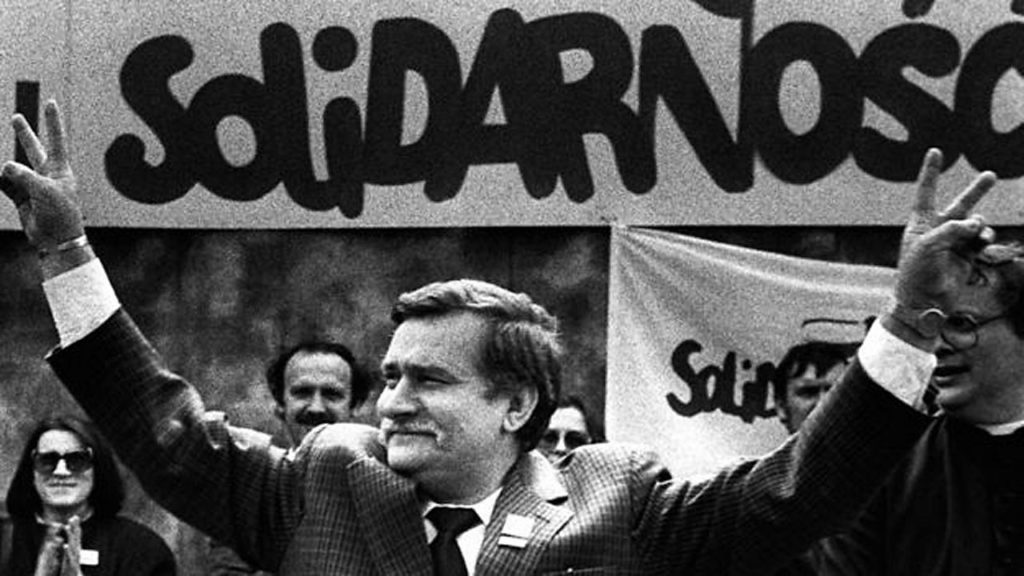
‘The BBC and the Cold War’ marks the anniversary of the fall of the Berlin Wall on 9th November 1989. In both its domestic programmes and those broadcast overseas by its World Service, the BBC mapped the course of the Cold War for a global audience. Moreover, as an international broadcaster, the BBC soon found itself engaged in an arms war of the ether, as it beamed its programmes over the Iron Curtain.
Reflecting on the critical role the BBC played, as a source of both news and intelligence, the BBC Oral History Collection reveals insider accounts from the cultural frontline of the Cold War. The website features clips from interviews with: Anatol Goldberg; Ian Jacob; Gerard Mansell; Alexander Lieven; Maurice Latey; Martin Esslin; Charles Curran; Ferenc Rentoul; Harman Grisewood; Oliver Whitley; Hugh Gaitskell; Huw Wheldon; Hugh Carleton Greene; Frank Gillard; Tony Benn; Noel Clarke; John Tusa. Alongside these are programme clips that illustrate the significance of broadcasting during the Cold War: the competing speeches of British Prime Minister Anthony Eden and Opposition Leader Hugh Gaitskell during the height of the 1956 Suez crisis; issues of civil defence and the horror of thermonuclear destruction, as seen in the 1965 BBC drama The War Game, which was banned from broadcast for twenty years.
In interviews recorded for the Sussex-BBC Centenary Collection, Eugeniusz Smolar reveals how an IBM computer provided a vital link between the Polish Solidarity movement and BBC journalists as they reported on the imposition of Martial Law in Poland in the early 1980s. Bridget Kendall and Elisabeth Robson-Elliot give eyewitness accounts of the collapse of Soviet communism in Moscow. And Peter Udell reflects on a career broadcasting over the Iron Curtain.
From the emergence of a new global conflict out of the unresolved tensions of the Second World War, to the collapse of the Soviet Union in 1991, the BBC provided a running commentary on the lived experience of the Cold War. This included giving voice on the airwaves to those living on the other side of the Iron Curtain, in the BBC German Service programme Letters without Signature, exploring the theme of nuclear disarmament, as exemplified by the Greenham Common Women’s Peace Camp, and the uses made of the open source intelligence supplied by the BBC Monitoring Service to its BBC and British government customers. As a consequence, ‘The BBC and the Cold War’ offers unique insights into the role of broadcasting during the defining geopolitical conflict of the second half of the Twentieth Century.



Leave a Reply